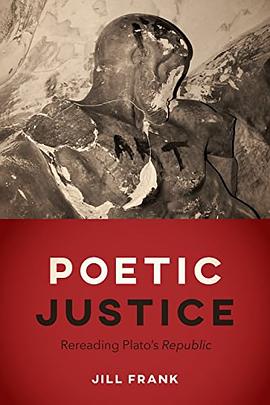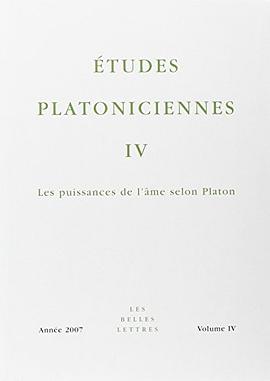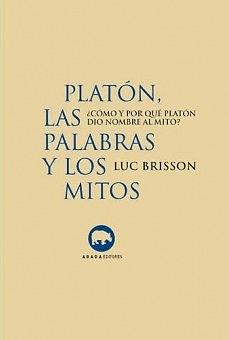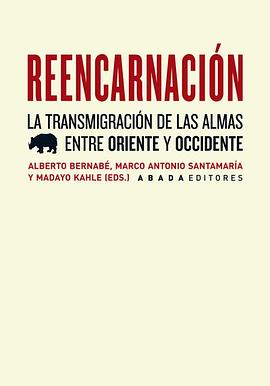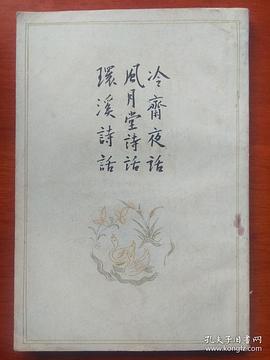
From Plato to Platonism pdf epub mobi txt 电子书 下载 2026
- 哲学
- 柏拉图主义
- Gerson
- 西儒
- 柏拉图
- 外版
- 哲學
- Plato
- Philosophy
- History
- of
- Ideas
- Original
- Thought
- Modern
- Philosophy
- ontology

具体描述
Was Plato a Platonist? While ancient disciples of Plato would have answered this question in the affirmative, modern scholars have generally denied that Plato’s own philosophy was in substantial agreement with that of the Platonists of succeeding centuries. In From Plato to Platonism, Lloyd P. Gerson argues that the ancients were correct in their assessment. He arrives at this conclusion in an especially ingenious manner, challenging fundamental assumptions about how Plato’s teachings have come to be understood. Through deft readings of the philosophical principles found in Plato's dialogues and in the Platonic tradition beginning with Aristotle, he shows that Platonism, broadly conceived, is the polar opposite of naturalism and that the history of philosophy from Plato until the seventeenth century was the history of various efforts to find the most consistent and complete version of “anti-naturalism."
Gerson contends that the philosophical position of Plato—Plato’s own Platonism, so to speak—was produced out of a matrix he calls “Ur-Platonism.” According to Gerson, Ur-Platonism is the conjunction of five “antis” that in total arrive at anti-naturalism: anti-nominalism, anti-mechanism, anti-materialism, anti-relativism, and anti-skepticism. Plato’s Platonism is an attempt to construct the most consistent and defensible positive system uniting the five “antis.” It is also the system that all later Platonists throughout Antiquity attributed to Plato when countering attacks from critics including Peripatetics, Stoics, and Sceptics. In conclusion, Gerson shows that Late Antique philosophers such as Proclus were right in regarding Plotinus as “the great exegete of the Platonic revelation."
作者简介
目录信息
Acknowledgments
Part 1. Plato and His Readers
1. Was Plato a Platonist?
Plato and Platonism
Ur-Platonism
From Plato to Platonism
2. Socrates and Platonism
The 'Socratic Problem'
Gregory Vlastos
Terry Penner
Christopher Rowe
3. Reading the Dialogues Platonically
Plato and Developmentalism
Plato the Artist, Plato the Philosopher
Plato’s Self-Testimony
4. Aristotle on Plato and Platonism
Aristotle and Ur-Platonism
Aristotle’s Testimony on the Mathematization of Forms
Aristotle’s Criticism of the Mathematization of Forms
Part 2. The Continuing Creation of Platonism
5. The Old Academy
Speusippus and First Principles
Speusippean Knowledge
Xenocrates
6. The Academic Skeptics
What Is Academic Skepticism?
Skepticism, Rationalism, and Platonism
7. Platonism in the ‘Middle’
Antiochus of Ascalon
Plutarch of Chaeronea
Alcinous
8. Numenius of Apamea
On the Good
Part 3. Plotinus: "Exegete of the Platonic Revelation"
9. Platonism as a System
The First Principle of All
Intellect
Soul
Matter
10. Plotinus as Interpreter of Plato (1)
Matter in the Platonic System
Substance and Becoming
Categories in the Intelligible World
The One and the Indefinite Dyad
The Good Is Eros
11. Plotinus as Interpreter of Plato (2)
Human and Person
Assimilation to the Divine
Moral Responsibility
Conclusion
Bibliography
· · · · · · (收起)
读后感
评分
评分
评分
评分
用户评价
这本书的封面设计着实抓人眼球,那种古典主义的字体和深沉的蓝色调,一下子就让人联想到那些遥远而深刻的思想源泉。我原本期待着一趟穿越时空的思想之旅,希望能看到柏拉图的思想如何在一个个后继者的手中被精细地雕琢、甚至是被颠覆。封面给我营造了一种庄严而又充满学术深度的预期,仿佛即将打开的每一页都蕴含着对“理念世界”的全新阐释。然而,当我真正沉浸其中,却发现作者似乎更专注于梳理清晰的谱系和定义,对于那些思想的“火花”——那些真正激发读者进行深度反思的论辩和张力——着墨不多。它更像是一份详尽的目录,标明了各个哲学家的位置,但对于他们具体构建的那个“世界”的细节描述,总觉得隔着一层薄雾。或许,对于初涉此领域的读者来说,这样的梳理是必要的,但对于那些渴望探究哲学辩证核心的求知者来说,这种“面面俱到”反而冲淡了那种直击灵魂的震撼感。整体阅读下来,感觉像是在参观一座布局精良但缺少镇馆之宝的博物馆,架构清晰,但缺乏令人屏息的震撼力。
评分这本书的语言风格,怎么说呢,非常“学术期刊范儿”,充满了被动语态和高度凝练的概括性陈述。这使得信息密度极高,但也极大地提高了读者的认知负荷。每一次阅读,我都需要放慢速度,反复咀嚼那些长句,试图解开其内部复杂的修饰成分和限定词。我更喜欢那种带有个人色彩、能够引导读者进入思考情境的叙事方式,哪怕是以牺牲一点点绝对的客观性为代价。例如,当探讨到某个关键的认识论转变时,我希望能看到作者用更具画面感的比喻或更贴近日常经验的类比来拉近读者与抽象概念的距离。这本书似乎完全放弃了这种“桥梁”的搭建,直接将读者抛入了理论的深海,期望读者能自行学会如何使用潜水设备。这对于专业人士或许是高效的,但对于希望建立更深层次情感或直觉连接的普通读者而言,无疑是一道难以逾越的门槛。
评分我得承认,作者在梳理庞大哲学史脉络方面的功力毋庸置疑,他成功地为我们绘制了一幅清晰的“谱系图”。从最初的形而上学雏形,到后世各种思潮的兼容并蓄,时间轴被拉得非常平直。然而,这种对“连贯性”的执着追求,似乎牺牲了对那些“异端”声音的关注。在我看来,哲学史的真正魅力往往在于那些“断裂点”和“叛逆者”身上,是那些不甘于继承衣钵、试图另辟蹊径的思想家,才真正推动了范式的转移。这本书似乎对那些“过于激进”或“偏离正统”的解释路径保持了一种审慎的距离,使得整个叙述显得过于“主流化”和“安全化”。我期待读到一些关于边缘思想的精彩辩护或深入剖析,那些让哲学史增添斑斓色彩的旁支,但它们在这本书中仅仅是一笔带过,更像是为主要叙事服务的注脚,而不是值得独立探讨的宝藏。
评分从整体的观感来看,这本书更像是为研讨会准备的背景资料汇编,而非一本旨在启发独立思考的专著。它提供了足够多的“事实”和“定义”,让你能够准确地复述某个学派的主张,但它鲜少提供能让你真正“质疑”这些主张的工具。比如,当涉及到“形式”与“质料”的永恒张力时,这本书只是详细列举了亚里士多德和柏拉图各自的立场,并描绘了中世纪学者如何调和它们,但对于“在数字时代,何谓永恒的形式?”这类需要大胆想象力的问题,它选择了沉默或回避。这种“百科全书式”的全面覆盖,最终导致了对任何单一问题的深度挖掘不足。我希望读到的是一场思想的搏击,而不是一场井然有序的学术阅兵。最终,合上书页时,我感到的是知识的充盈,而非思维的拓展,这对我而言,是一个不小的遗憾。
评分这本书的论述结构严谨到令人敬畏,每一章的过渡都像是经过精密计算的齿轮咬合,逻辑链条几乎无懈可击。作者似乎将自己定位成一位严谨的古代文献考古学家,小心翼翼地挖掘每一个概念的原始语境,并试图在不同的历史阶段追踪其语义的细微漂移。这种学术上的刻板和一丝不苟,无疑保证了内容的准确性,但代价是阅读体验上的枯燥。当我试图跟随作者深入探讨某个核心的“本真性”或“摹仿”理论时,总感觉自己被淹没在大量的术语释义和历史引证之中,仿佛在啃一块未经烹饪的哲学硬骨头。我渴望看到的是作者如何挑战这些既定的诠释,如何用现代的视角去“激活”这些沉睡的理论,让它们在当下的语境中重新发出声响。但很遗憾,这本书似乎更倾向于“保存”和“记录”,而不是“诠释”和“创造”。这使得阅读过程更像是一场持续的学术报告会,而非一场思想的激荡。
评分 评分 评分 评分 评分相关图书
本站所有内容均为互联网搜索引擎提供的公开搜索信息,本站不存储任何数据与内容,任何内容与数据均与本站无关,如有需要请联系相关搜索引擎包括但不限于百度,google,bing,sogou 等
© 2026 book.quotespace.org All Rights Reserved. 小美书屋 版权所有


